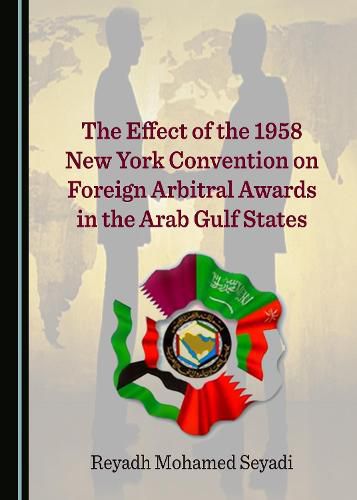Readings Newsletter
Become a Readings Member to make your shopping experience even easier.
Sign in or sign up for free!
You’re not far away from qualifying for FREE standard shipping within Australia
You’ve qualified for FREE standard shipping within Australia
The cart is loading…






In the second half of the twentieth century, alongside the evolution of the global economy, modern technology, rapid transportation and multinational enterprises, there was an increased demand for a dispute resolution mechanism that met the needs of traders, international trade and economic policy-makers. Arbitration as an alternative dispute resolution has significantly gained in popularity in the Arab Gulf States over the past two decades or so. This is no doubt reason enough to take a closer look at the main theme that defines arbitration in this region. National courts of the Arab Gulf states are invariably seen as not very arbitration friendly, some possibly even hostile to arbitration. Public order, alongside the Islamic legal traditions, is seen as unruly horse that could possibly undermine the development of international commercial arbitration in this region. The contribution in this book will go some way toward dissipating the concerns that are routinely raised about the procedural and practical soundness of arbitration in the Arab Gulf states. In addition, the book serves to place arbitration in the Arab Gulf states in its present legal systems, national laws and courts practices.
$9.00 standard shipping within Australia
FREE standard shipping within Australia for orders over $100.00
Express & International shipping calculated at checkout
In the second half of the twentieth century, alongside the evolution of the global economy, modern technology, rapid transportation and multinational enterprises, there was an increased demand for a dispute resolution mechanism that met the needs of traders, international trade and economic policy-makers. Arbitration as an alternative dispute resolution has significantly gained in popularity in the Arab Gulf States over the past two decades or so. This is no doubt reason enough to take a closer look at the main theme that defines arbitration in this region. National courts of the Arab Gulf states are invariably seen as not very arbitration friendly, some possibly even hostile to arbitration. Public order, alongside the Islamic legal traditions, is seen as unruly horse that could possibly undermine the development of international commercial arbitration in this region. The contribution in this book will go some way toward dissipating the concerns that are routinely raised about the procedural and practical soundness of arbitration in the Arab Gulf states. In addition, the book serves to place arbitration in the Arab Gulf states in its present legal systems, national laws and courts practices.